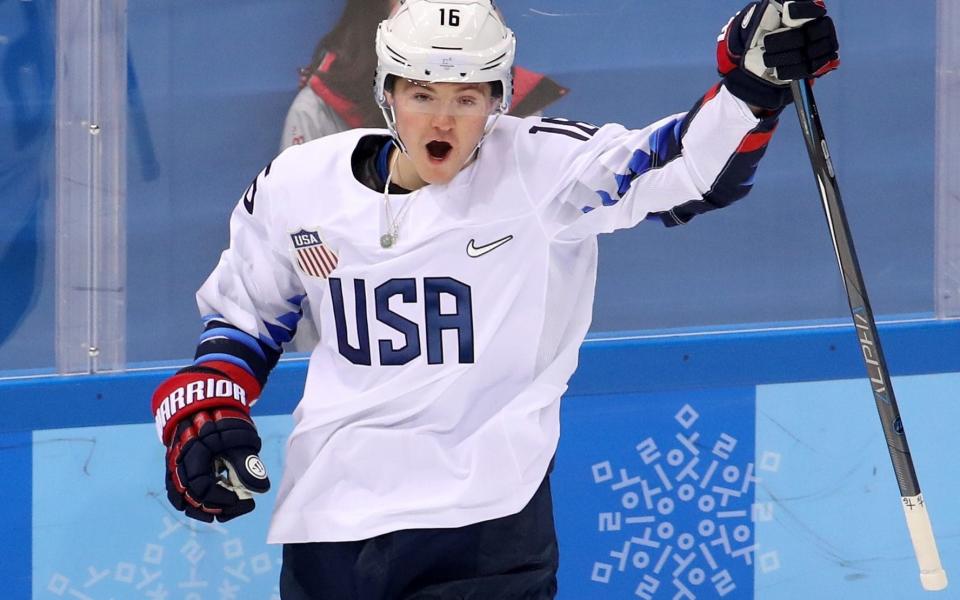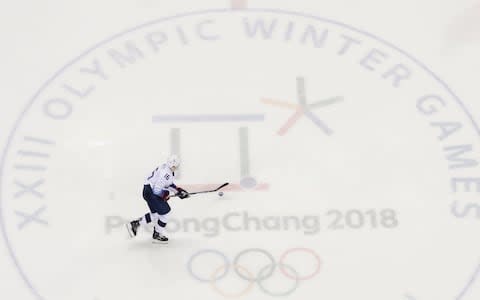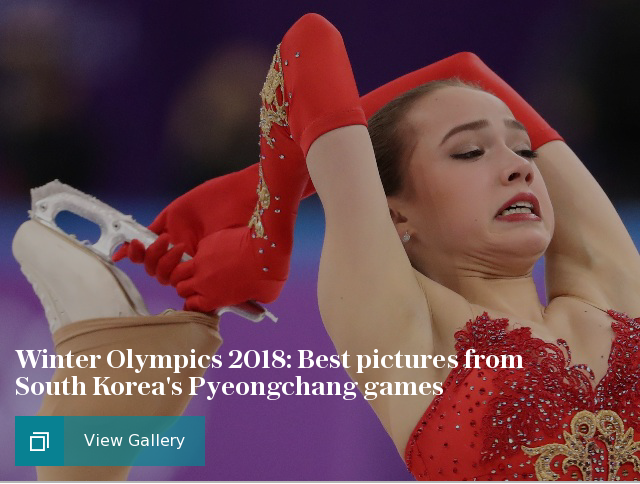Ryan Donato goes back to school after standout performance at Winter Games – what a difference a few days make

Sat on his flight back to the United States on Thursday, Ryan Donato pulled out the homework he had neglected for the past few weeks and prepared to return to the mundane normality of college life.
A student at Harvard University, Donato left Pyeongchang as the unexpected standout player in a United States ice hockey team that was dumped out of the Olympics at the quarter-final stage.
At most other Winter Games, it would have been a given for one of the sport’s most illustrious nations to have made Friday night’s semi-finals at a bare minimum.
Instead the team of misfits that Donato belonged to had already disbanded and gone their separate ways to continue plying their fares far and wide across the globe – but not the National Hockey League (NHL).
It was more than a year ago that the NHL confirmed it would not be releasing players to appear in Pyeongchang.
For the past five editions of the Olympics, an agreement was in place that saw the NHL take a mid-season break for the world’s finest players to report for national duty. Thanks to what the NHL nauseatingly phrased “the cost-benefit equation”, that is no longer the case.
Put simply, the No 1 ice hockey league in the world saw no financial reason to continue making such a concession.

For the owners of the 30 teams who make up the NHL board, there was deemed to be nothing to gain from halting their league for a 17-day period during which they could capitalise on no top-level American football or baseball being played. Add in the risk of injury to marquee players if they let them go and it was a no-brainer. So they banned it.
The NHL season would continue as planned and 150 to 200 international players – the bulk of them American and Canadian – would not be allowed to represent their country at the Pyeongchang Games.
Understandably, the decision proved controversial. A number of high-profile players spoke of their anger and the NHL Players’ Association said they were “extraordinarily disappointed and adamantly disagree” with the “short-sighted” decision.
But money talks. Which meant that, for the past 12 months, United States head coach Tony Granato and his counterparts in Canada, Sweden and other leading ice hockey nations have been trawling the globe attempting to cobble together teams.
From American and Canadian perspectives, the result was two teams of journeymen based overseas, players seeing out their career in minor leagues and a sprinkling of promising college students.
Captained by a 39-year-old forward who failed to score in the entire Olympic tournament, the United States side featured players based in seven different countries alongside Donato and fellow college students Jordan Greenway and Troy Terry.
The aspiration – more in hope than any realistic expectation – was for the hotchpotch side to match the exploits of the American team of amateurs who beat the dominant, professional Soviet Union to gold at the 1980 Olympics in the famous ‘Miracle on Ice’.

What that did not take into account was the months of practice afforded to the 1980 contingent compared to the fortnight’s preparation the recent cohort had before these Games.
Somewhat ironically – given the sanctions placed on Russia at these Olympics – it has been the Russians who have benefitted most from the NHL ban.
With many of their players plying their trade in their own Kontinental Hockey League, which is generally accepted to be the second strongest league in the world, Olympic Athletes from Russia have dominated in Pyeongchang and were roared on by a large, raucous following as they booked their place in Sunday’s final with a 3-0 win over Czech Republic on Friday night.
There they will face Germany, who entered the tournament as rank outsiders but shocked a depleted Canadian side 4-3 in the other semi-final.
Meanwhile, thousands of miles from the glare of the Olympics, American hotshot Greenway was also due to be in action on Friday night for Boston University against Vermont. What a difference a few days make.

 Yahoo Sport
Yahoo Sport 





































